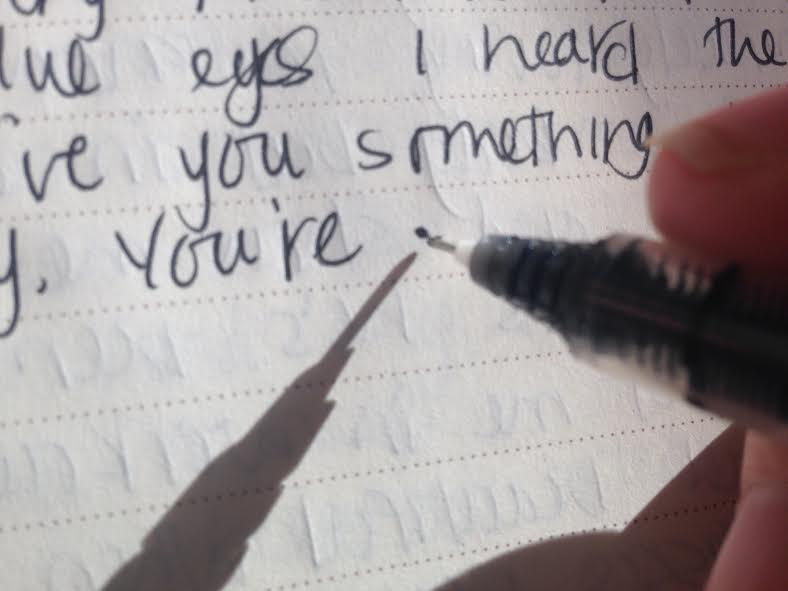Every morning at 4:30 I crawl out of bed and reach for my glasses (usually knocking a book or two off my bedside table) and trip to my blue wing chair, where I turn on the lamp and open my morning notebook.
And then I write three pages—about 900 words—on whatever comes to mind.
I have no agenda. No purpose. I just write.
It’s an idea I got from Julia Cameron, a creativity teachers and author of The Artist’s Way. Cameron calls these writing sessions “morning pages.”
When I first read about them in one of her books, I was skeptical. She advocates that you get out of bed half an hour earlier than normal, and, good grief, I already got out of bed at 5. I wondered how I might possibly benefit from less sleep and more writing, when I already wrote nonstop between the hours of 12:30 and 5:30 p.m. Wasn’t that enough?
Still, I decided to give it a chance.
I’m hardly ever completely awake when I’m doing my morning pages, but I have never had to search for anything to say—mostly because the point of morning pages isn’t really to say something profound or true or worth using later (although sometimes that will happen naturally).
The point is to clear a cluttered mind.
I think of them as my writing meditation.
In my morning pages, I unload all the stress that weighs on my subconscious—that payment a client has yet to make, my little boy’s complaint about his tummy hurting last night, how I really don’t want to take on that assignment but feel a little pressured to.
Every now and then a new story idea or an essay topic will find its way into my pages, but that’s never the goal.
The goal, at its simplest, is to clear a mind of it unnecessary weight so we will have more room to create and move and make beauty for the world.
When we are so weighed down by worries and concerns and things to do, we cannot freely create our art.
So writing first thing in the morning, to break free of those weights, is not just for writers. It’s for all artists.
Creativity begins with writing.
When we write, whether it is a record of our day or a 100,000-word story we’re trying to sell, our world becomes clear. We find ourselves in words, in all the poetry that finds its way into choppy sentences or long, flowery ones that say something or nothing at all.
Writing opens up space in our minds so we can envision more and dream bigger and create in a new dynamic.
It’s up to us how that writing is done. I do it in a composition notebook, by hand—mostly because studies show that the motion of our hands gets our brain thinking more creatively.
But also because when we write by hand, we have a record of our days. We can see our handwriting and how it changed from day to day and mood to mood—how in those days’ records right there, the baby I was holding kept kicking my hand in the middle of a word. And right there is when I felt so passionate about what I was writing that the passion showed itself in hurried handwriting and water splotches. And right there—that’s where I couldn’t write fast enough for the speed at which my brain was working, so all the letters run together in excitement.
My morning pages tell a story of exhaustion and worry and excitement and gratitude and joy and motherhood and creativity and hope.
It is the place where I have written, “I’m tired of doing things for free,” and those words helped me realize I was giving too much of my writing away and not asking enough compensation for my value. It is the place where I have worked out how I would most like to use my gift. It is the place where I have renounced the fear that I will do all this work only to see nothing come of it.
I don’t look back through those early morning pages often, but I plan to. Because there are jewels hidden in my stream-of-conscious writing, and I want to find them.
Writing can make a world clearer. It can tell us more about our true selves. It can help us work out the places where we feel stuck and trapped and too heavy to fly.
All of this informs our creativity.
So get out a notebook and write.
Challenge: Try morning pages for the next month. Set your alarm clock half an hour early (I know, I know how hard it is!) and write without stopping until you have filled three pages. Don’t worry if it sounds petty or trite, or if it doesn’t even make sense because you’re half asleep. It’s better that the petty and trite get down on paper instead of clogging your creativity.


